Our Serviced Apartment Sentiment Survey invited 90 lenders, investors, and operators to share their views on the challenges and strategic focus points in 2022 and beyond.
Industry Insights
We have written thousands of articles about all aspects of hospitality, including valuations, investing, lending, operations, asset management, and much more.
The Serviced Apartment Sector in Europe 2022 – Navigating the Headwinds
Our Serviced Apartment Sentiment Survey invited 90 lenders, investors, and operators to share their views on the challenges and strategic focus points in 2022 and beyond.
HVS Monday Musings: Indian Hotel Sector – Crystal Gazing Into 2022
2022 will be a crucial year for the Indian hotel sector as it continues its uphill journey on the long road to post-COVID recovery. As we enter the new year, let us look at the top trends that are likely to shape the sector in the year ahead.
HVS Monday Musings: Sustainability in the Hotel Industry is Crucial to Combat Climate Change
As they recover from the COVID crisis, the tourism and hospitality industries, which are not only victims of the climate disaster but also big emitters and contributors to global warming, have the chance to take up climate action to move toward a greener, more sustainable future.
In Focus: Maldives
In Focus: Maldives 2021 provides an overview of Maldives' tourism landscape and hotel market performance, infrastructure development, workation, long-stay tourism, guest house culture, hotel transactions and investment in 2020, COVID-19 situation, outlook and crisis management.
Market Snapshot: Asia Pacific 2021
The Market Snapshot: Asia Pacific 2021 highlights an overview of transaction activity in the region and presents 26 cities’ current hospitality landscape; each covering demand and supply dynamics, hotel performances, and key transactions.
The Long Road Back: COVID-19’s Impact on the Boston Lodging Market
The COVID-19 pandemic brought Boston’s hotel market to its knees. How far has the Boston hotel market fallen? How does this compare to other major metropolitan areas? What will the recovery look like?
HVS Market Pulse: Fort Lauderdale
Hotels in Fort Lauderdale and the greater market recorded a banner year in 2019. The new decade kicked off a strong start with expectations that the momentum would continue, led by the demand from Super Bowl LIV held in nearby Miami Gardens. However, the onset of COVID-19 in March 2020 brought travel to a sudden standstill across the nation, immediately impacting hotels in the local market.
COVID-19’s Impact on the Los Angeles Hotel Market
A record-breaking decade of growth in the Los Angeles hospitality market was brought to a halt by COVID-19 in 2020. A year after the start of the pandemic, we explore the changing dynamics of this market.
Anchorage Lodging Market: Winter 2021 Update
Declining oil and gas prices since 2014 have largely resulted in an economic retrogression in Alaska. Aside from the oil and gas industry, the tourism industry is one of the largest private-sector groups of employers in the state and accounts for one of every eight jobs. Therefore, the impact of the COVID-19 pandemic has been detrimental to the local economy. While the widespread availability of a vaccine has ignited hope, tourism recovery faces some obstacles in 2021.
The Hotel Industry's Pandemic Bright Spot: The Extended-Stay Segment
Extended-stay hotels have long been the industry's answer to those seeking accommodations similar to an apartment, but without the need to sign a long-term lease. Stays can be as short as one overnight or as long as years, in rare cases, but generally trend from two weeks to a couple of months.
Industry Insights
We have written thousands of articles about all aspects of hospitality, including valuations, investing, lending, operations, asset management, and much more.
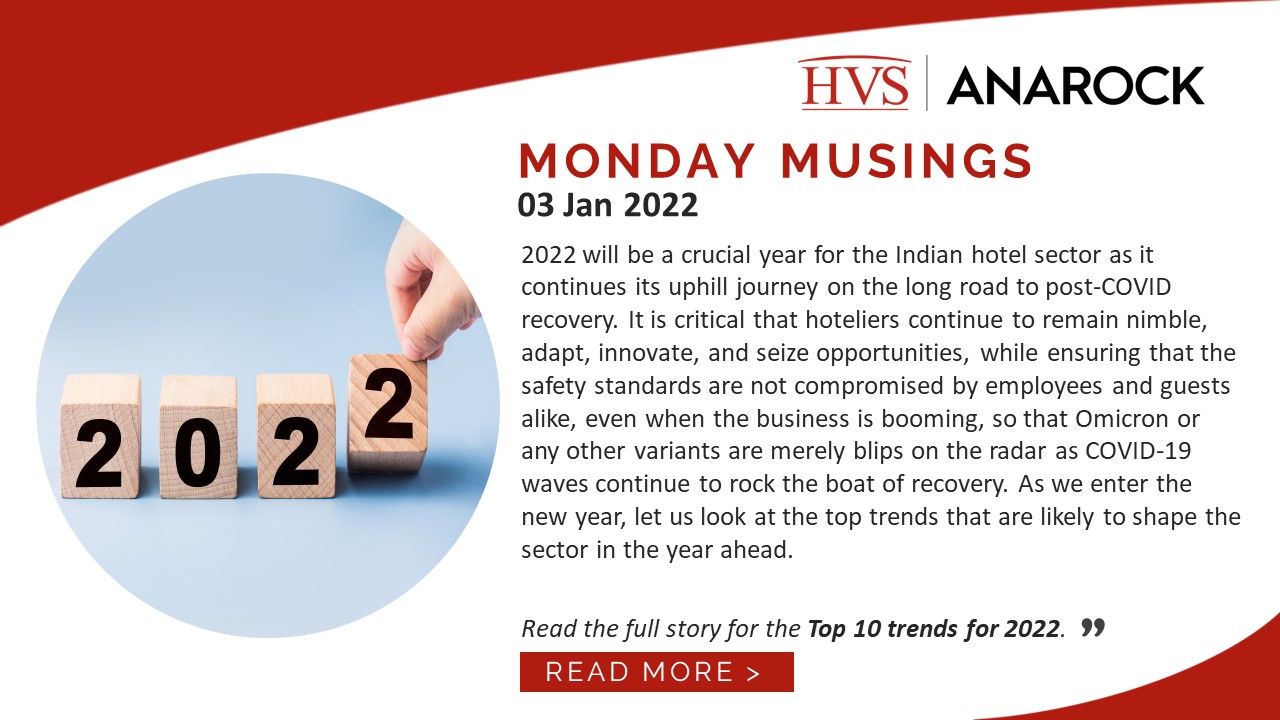
2022 will be a crucial year for the Indian hotel sector as it continues its uphill journey on the long road to post-COVID recovery. As we enter the new year, let us look at the top trends that are likely to shape the sector in the year ahead.
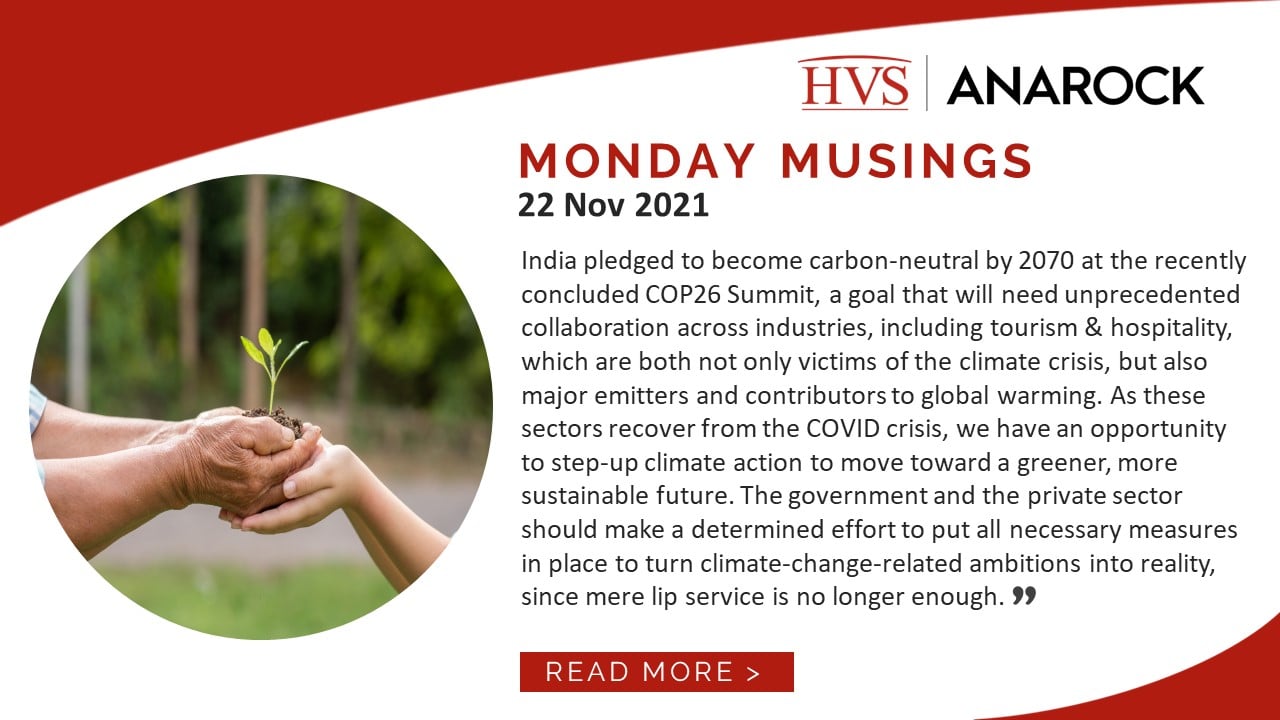
As they recover from the COVID crisis, the tourism and hospitality industries, which are not only victims of the climate disaster but also big emitters and contributors to global warming, have the chance to take up climate action to move toward a greener, more sustainable future.
In Focus: Maldives 2021 provides an overview of Maldives' tourism landscape and hotel market performance, infrastructure development, workation, long-stay tourism, guest house culture, hotel transactions and investment in 2020, COVID-19 situation, outlook and crisis management.
The Market Snapshot: Asia Pacific 2021 highlights an overview of transaction activity in the region and presents 26 cities’ current hospitality landscape; each covering demand and supply dynamics, hotel performances, and key transactions.
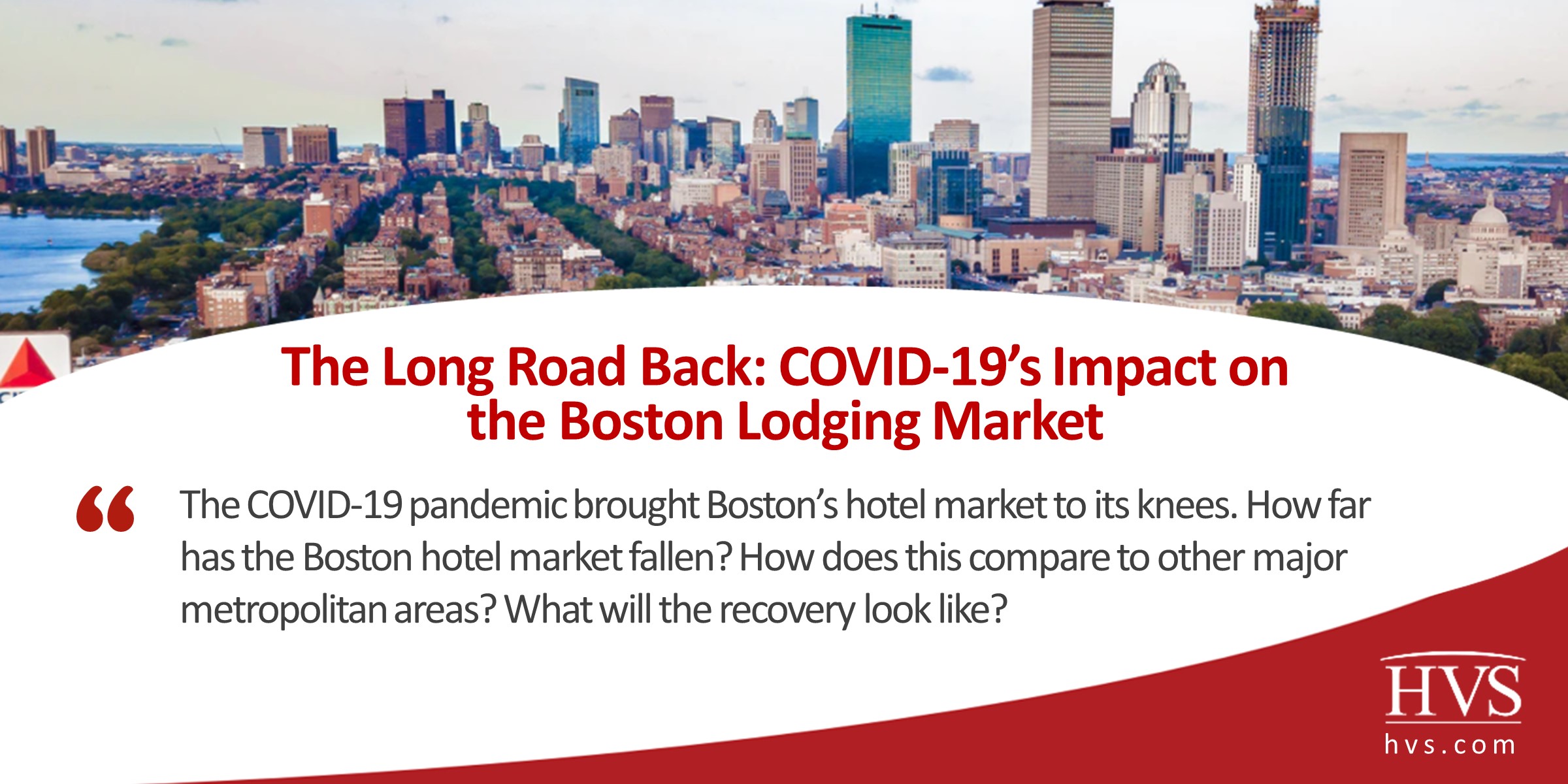
The COVID-19 pandemic brought Boston’s hotel market to its knees. How far has the Boston hotel market fallen? How does this compare to other major metropolitan areas? What will the recovery look like?
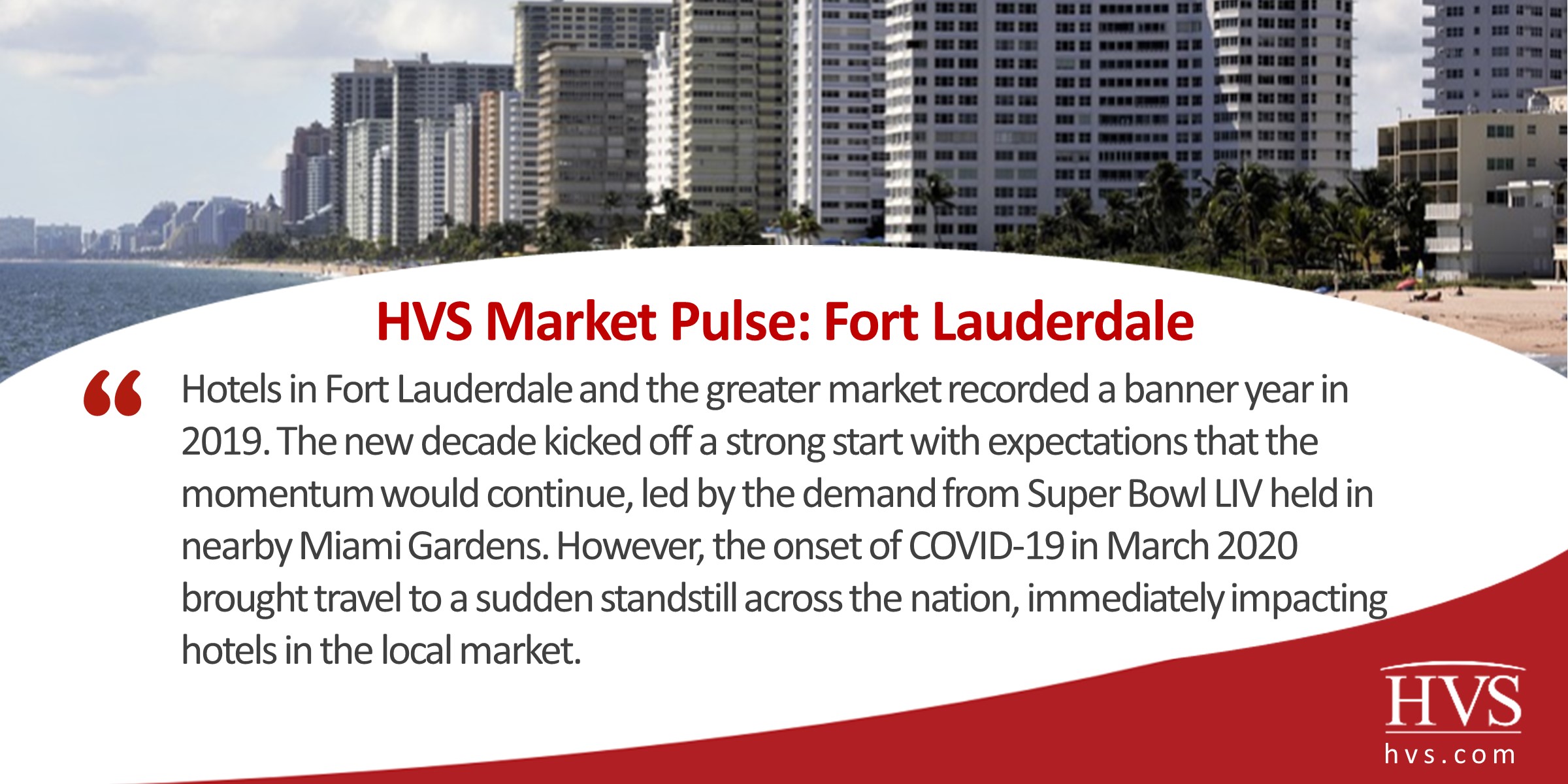
Hotels in Fort Lauderdale and the greater market recorded a banner year in 2019. The new decade kicked off a strong start with expectations that the momentum would continue, led by the demand from Super Bowl LIV held in nearby Miami Gardens. However, the onset of COVID-19 in March 2020 brought travel to a sudden standstill across the nation, immediately impacting hotels in the local market.
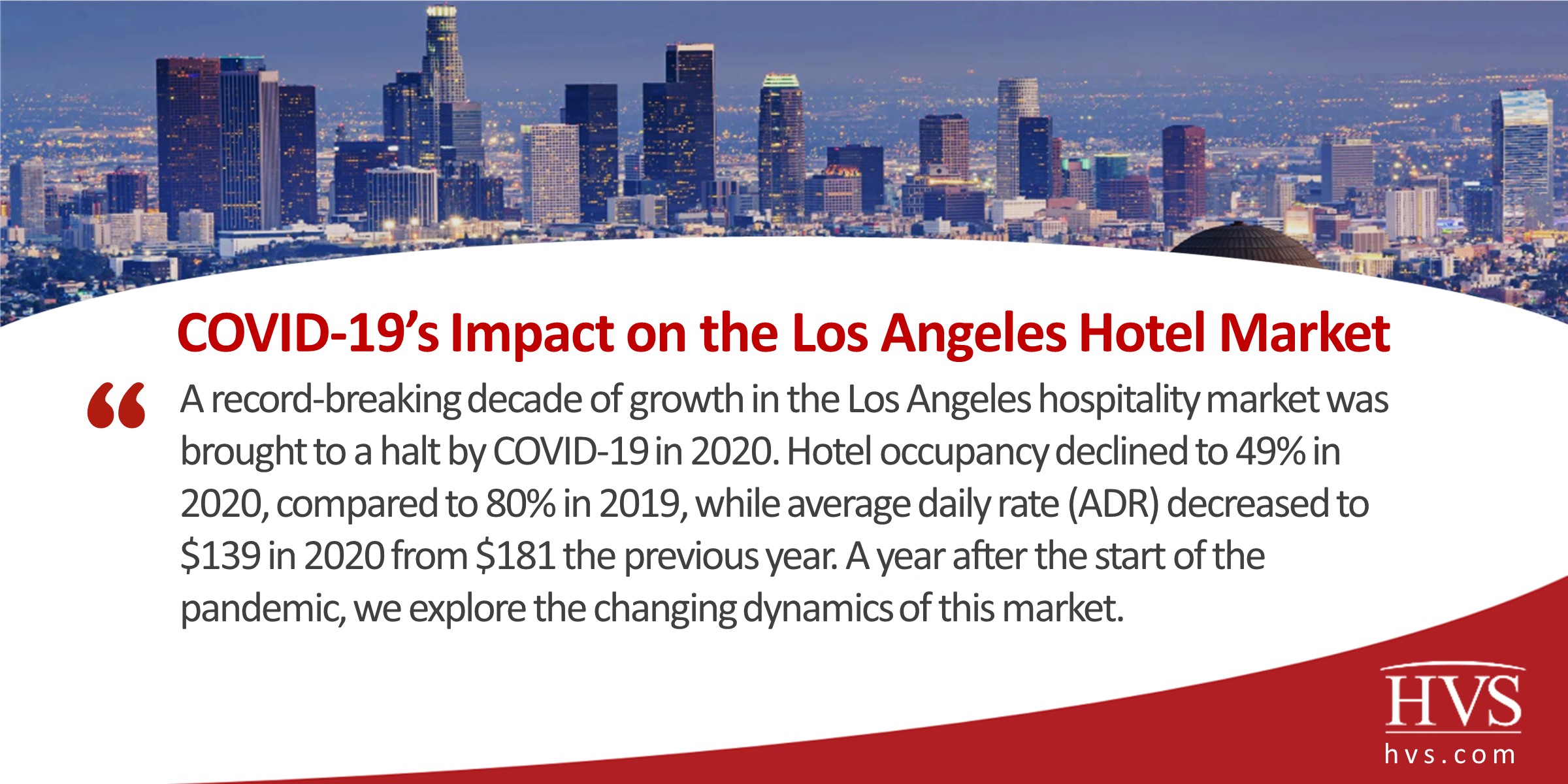
A record-breaking decade of growth in the Los Angeles hospitality market was brought to a halt by COVID-19 in 2020. A year after the start of the pandemic, we explore the changing dynamics of this market.
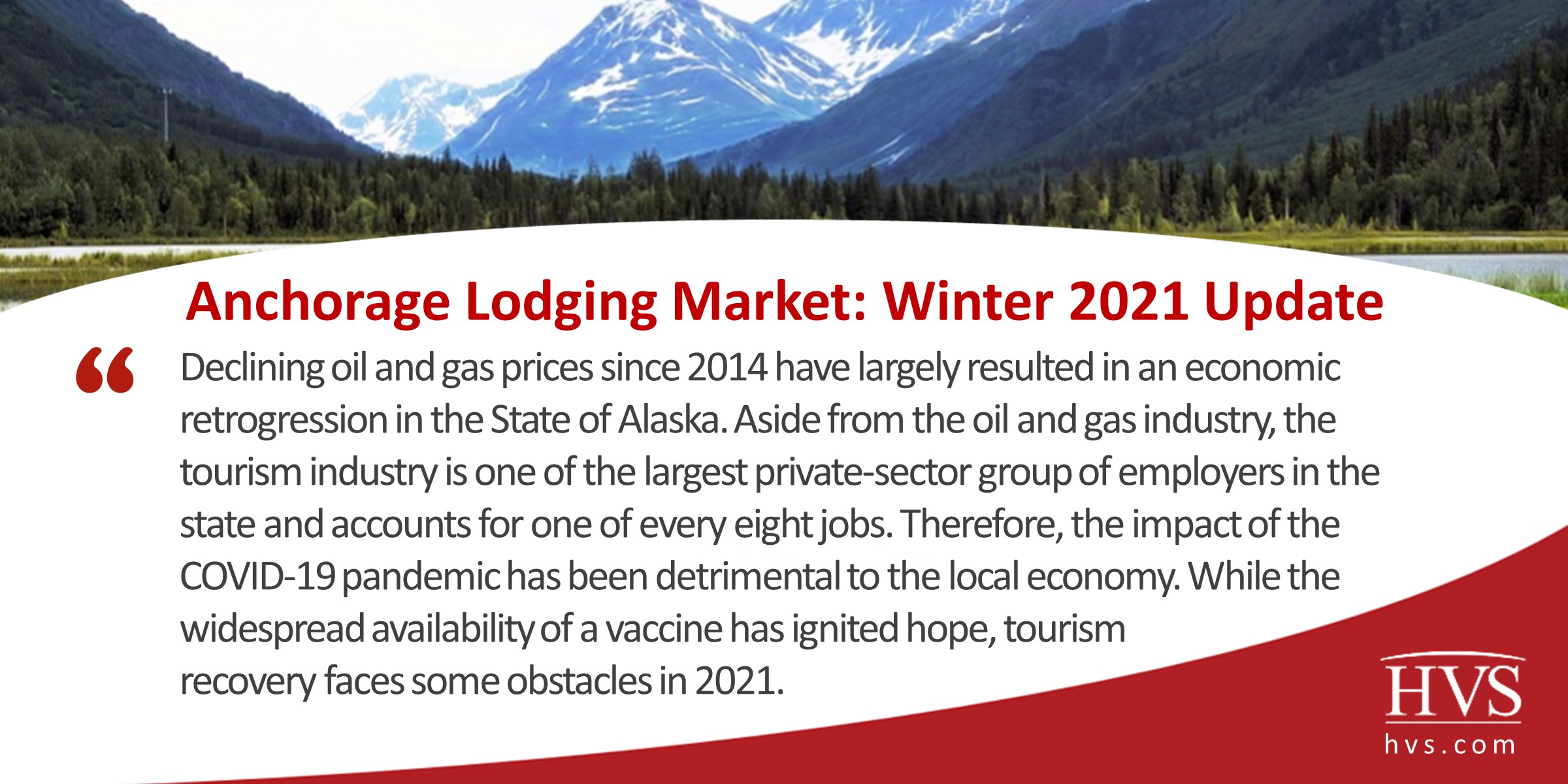
Declining oil and gas prices since 2014 have largely resulted in an economic retrogression in Alaska. Aside from the oil and gas industry, the tourism industry is one of the largest private-sector groups of employers in the state and accounts for one of every eight jobs. Therefore, the impact of the COVID-19 pandemic has been detrimental to the local economy. While the widespread availability of a vaccine has ignited hope, tourism recovery faces some obstacles in 2021.

Extended-stay hotels have long been the industry's answer to those seeking accommodations similar to an apartment, but without the need to sign a long-term lease. Stays can be as short as one overnight or as long as years, in rare cases, but generally trend from two weeks to a couple of months.

Robust demand in urban centers continues to drive Canadian hotel values despite high interest rate environment.